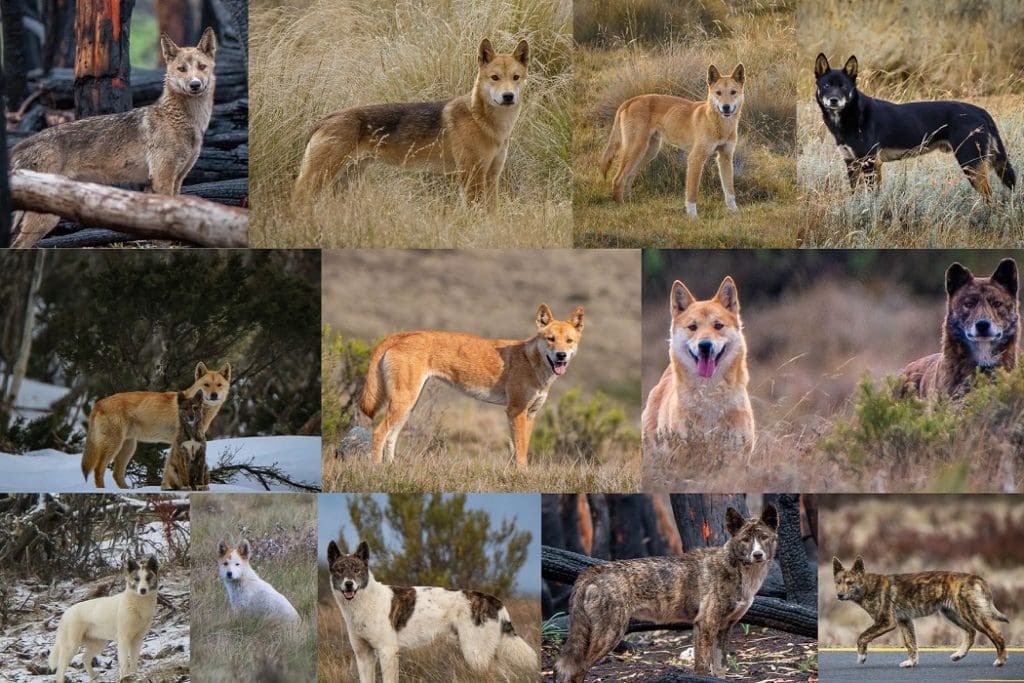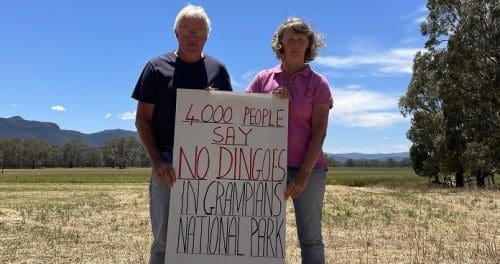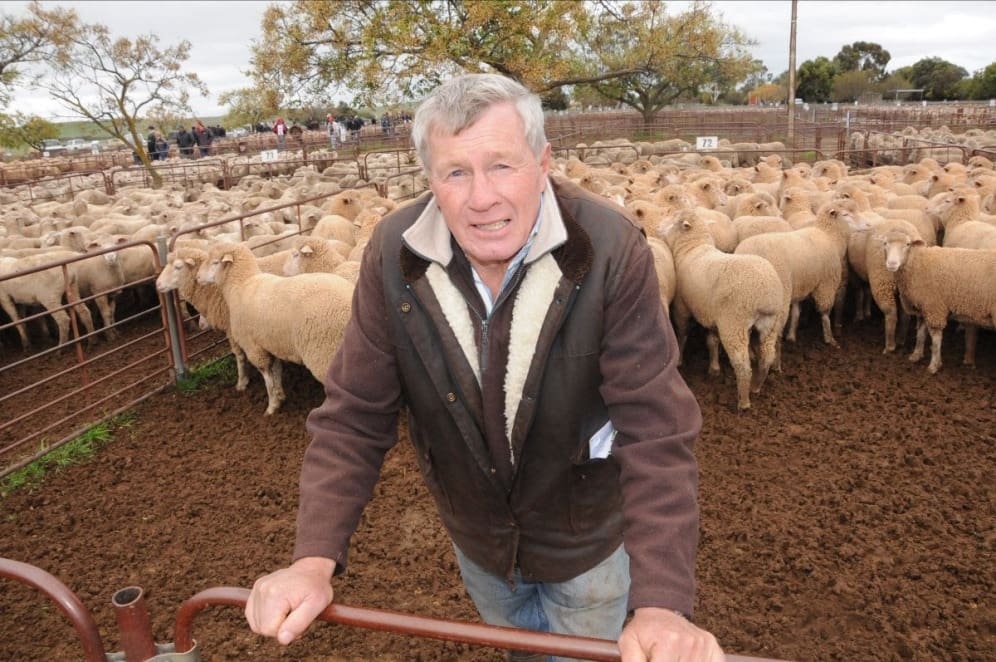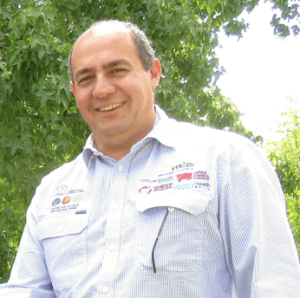
Dingoes come in all colours. Image – UNSW.
VICTORIA’S livestock industry will be at risk of more wild dog attacks with recent changes in the state’s dingo ‘unprotection order’ laws, an anti-dingo campaigner believes.
The Allan Labor Government yesterday said effective from 14 March, a dingo ‘unprotection’ order will conclude in north-west Victoria and will remain in place in eastern Victoria until 1 October 2024.
The wild dog component of the current Fox and Wild Dog Bounty Program will also not continue in the north-west, although there will be no changes to the fox bounty in the region.
The government said the decisions follow new research, strong advice and the effectiveness of non-lethal dingo control methods to protect livestock.
Victoria’s Wildlife Act (1975) Order In Council ‘unprotects’ the dingo on private land, and on public land within 3km of the private land boundaries to public lands, enabling baiting and trapping.
The government said it is helping protect a vulnerable population of dingoes in Victoria’s north-west while ensuring farmers are able to protect their livestock.
Farmers in the north-west will be supported by a $550,000 investment to adopt alternate non-lethal control methods via a pilot of measures, such as exclusion fencing and guardian animals. This funding will also support the management of other pests including feral goats, wild pigs and foxes, the government said.
Outside the north-west, in other parts of Victoria, dingo control measures will remain unchanged – giving stability to farmers in need of protecting their livestock, the government said. And the review into the government’s wild dog management policies will be finalised in the next six months and consider the new research alongside the impacts on livestock.
Will dingoes in the Grampians be next?

Victoria Valley wool growers John and Rhonda Crawford have been campaigning against dingo reintroductions.
Victoria Valley Wool producer Rhonda Crawford said she was concerned the government’s next step will be to reintroduce dingoes into the nearby Grampians National Park or Gariwerd.
Mrs Crawford and her family have been lobbying for the government to respond to recommendations in the Parliamentary Report into Ecosystem Decline in Victoria that included removing the Order In Council with its three-kilometre livestock protection buffer, reintroducing dingoes in some parks and phasing out 1080 baiting.
“The writing is on the wall,” she said.
Mrs Crawford said the $550,000 offered for adoption of alternate non-lethal control methods will not be enough to protect sheep flocks from wild dogs.
“Of course not.”
The sheep and wool industry statewide is now at risk of more wild dog attacks, she said.
“Because obviously they are doing the animal rights bodies and the traditional owners.”
Mrs Crawford asked what future would her children have in taking over an operation at risk of wild dog attacks.
“What have they got if we can’t keep them (wild dogs) in the park and they will come out and gradually work their way through the state?”
Removing order could be the first step in undermining sheep and wool

SA woolgrower and chair of the National WIld Dog Management Coordination Committee, Geoff Power.
The National Wild Dog Action Plan Coordination Committee said the government’s decision has left sheep and cattle producers in the region ill-equipped to prevent wild dog attacks on their livestock.
Committee chair Geoff Power said the decision could have a severe impact on livestock producers in the north-west region and it was extremely disappointing that industry was not involved or consulted in this decision.
“The economic and environmental impacts of wild dogs are significant, not to mention the emotional toll on producers when they experience attacks on their livestock.
“Removing the dingo unprotection order in the north-west could be the first step in undermining the state’s $4.5 billion sheep and wool industry and the 9200 jobs that it provides for Victorian residents,” he said.
With the dingo unprotection order remaining in place for eastern Victoria until 1 October 2024, Mr Power said industry would continue its attempts to engage with the Victorian Government during the remainder of the review process.
“For industry, it’s not about eradication of dingoes, it’s about control. While this decision is devastating for producers in northwest Victoria, the NWDAP Coordination Committee is hopeful that it can work with the Victorian Government during the remaining six months of the review to find a balanced approach to wild dog control in the state,” said Mr Power.
Only a matter of time before wild dogs spread

National Wild Dog Management Plan coordinator Greg Mifsud
National Wild Dog Management Plan coordinator Greg Mifsud said without the ‘unprotection’ order in north-west Victoria, it’s only a matter of time before wild dogs spread to other parts of western Victoria.
“For industry, this decision is the realisation of their worst fears – of being almost powerless to protect the welfare of their animals from wild dog attacks.
“It begs the question of when does the welfare of one animal trump the welfare of another?”
“The reality is that the dingo unprotection order provides a balance between wild dog control and dingo conservation.
“The order only operates in 1.6 million of the 4.7 million hectares of public lands in the east and northwest of the state, leaving over 3.1 million hectares of public lands including state forest and national park where dingoes are free from lethal control,” he said.
Animal protection organisation welcome government decision
Animal protection organisation Humane Society International welcomed the government’s decision, the introduction of control permits and the cessation of the bounty of $120 per dingo pelt.
HIS Australia’s head of campaigns Nicola Beynon said the body congratulated the Allan Government for bringing “these callous and outdated dingo measures” to an end in north-west Victoria.
“Now we need to see an end to the unprotection order in the rest of the state,” she said.
“Dingoes are an important apex predator in the landscape and are of high conservation value due to their cultural significance and evolutionary role in regulating ecosystems.
“They are intrinsically linked to the health of many ecosystems, and by suppressing cat and fox activity can have a much-needed positive impact on the survival of many other Australian species,” she said.
“We are pleased to see funding for landholders to assist with non-lethal measures for dingo management.
“With native wildlife under serious pressure in our landscapes we can no longer be complacent about their survival, let alone incentivise them being killed.”
Last year HSI Australia published a guidebook for landholders called Predator Smart Farming that outlines non-lethal strategies for dingo management. One such strategy is the use of guardian animals, like Maremma dogs and donkeys, to protect farmed animals from predators.
HSI said the partial revocation of the unprotection order comes as Animals Australia prepares a court case to challenge the order across the state.
